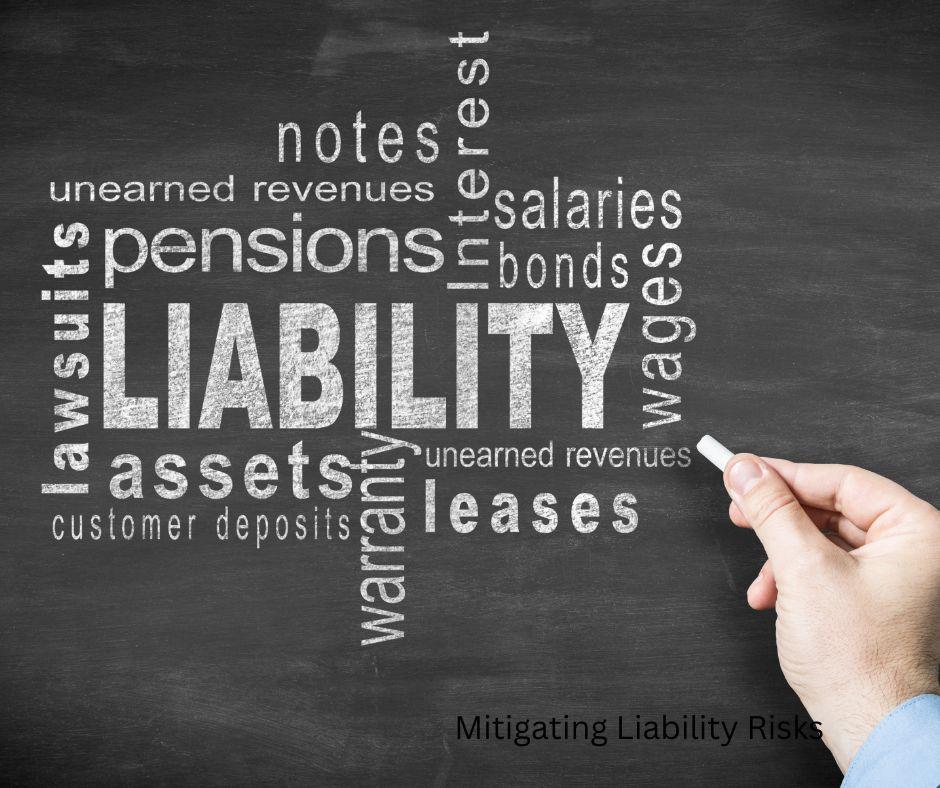Intro – 5 Essential Reasons Why Your Business Needs Insurance
In the dynamic world of business, uncertainties are inevitable. From unforeseen accidents to natural disasters, the risks are numerous, and their consequences can be devastating. That’s where business insurance steps in, acting as a financial safety net and a shield against potential liabilities. While some may view insurance as an unnecessary expense, the truth is that it’s an indispensable investment for any business, regardless of its size or industry. Let’s delve into the five essential reasons why your business needs insurance.
Safeguarding Against Unexpected Events

The business landscape is fraught with unexpected events that can disrupt operations and inflict substantial financial losses. Natural disasters, such as floods, hurricanes, and earthquakes, can wreak havoc on your physical assets and inventory. Fires, theft, and vandalism can further compound the damage. Without adequate insurance coverage, your business could struggle to recover from such setbacks.
Statistics speak volumes:
- According to the Federal Emergency Management Agency (FEMA), 40% of businesses never reopen after a disaster.
- The Insurance Information Institute reports that the average cost of a commercial property fire is $80,000.
- The National Retail Federation estimates that inventory shrinkage due to theft costs retailers billions of dollars each year.
Business insurance provides a financial buffer, enabling you to rebuild and resume operations after an unexpected event. It covers the cost of repairs, replacements, and lost income, ensuring your business’s survival and minimizing downtime. Moreover, knowing that your business is protected against unforeseen circumstances brings peace of mind, allowing you to focus on growth and innovation.
Protecting Your Assets

Your business assets, both tangible and intangible, are the backbone of your operations. They represent significant investments and contribute to your overall value proposition. However, these assets are susceptible to damage, loss, or theft, potentially jeopardizing your business’s financial stability.
Business insurance offers a comprehensive safeguard for your assets. Property insurance covers physical assets such as buildings, equipment, inventory, and furniture. It protects against perils like fire, theft, vandalism, and natural disasters. In the event of damage or loss, your insurance policy will reimburse you for the cost of repairs or replacements, ensuring your business can continue functioning smoothly.
Intangible assets, such as intellectual property, brand reputation, and customer data, are equally vital to your business’s success. Liability insurance protects these assets by covering legal costs and damages in case of lawsuits related to copyright infringement, defamation, or data breaches.
Consider these examples of asset-related losses:
- A manufacturing plant suffered extensive damage due to a fire, resulting in millions of dollars in lost equipment and inventory.
- A software company faced a lawsuit for alleged copyright infringement, incurring substantial legal fees.
- A retailer experienced a data breach, exposing sensitive customer information and damaging its reputation.
Without insurance, businesses facing such situations could face financial ruin. Insurance acts as a safety net, protecting your assets and allowing you to navigate challenging circumstances without compromising your financial well-being.
Mitigating Liability Risks

In today’s litigious environment, businesses face a myriad of liability risks. Accidents, injuries, product defects, professional errors, and even customer dissatisfaction can lead to lawsuits, resulting in hefty legal fees, settlements, and reputational damage.
Liability insurance serves as a crucial defense against such risks. It provides financial protection by covering legal costs, settlements, and judgments awarded against your business. Various types of liability insurance cater to specific needs:
- General liability insurance: Protects against claims of bodily injury, property damage, and personal injury caused by your business operations.
- Product liability insurance: Safeguards against claims of injury or damage caused by your products.
- Professional liability insurance: Covers claims of negligence, errors, or omissions in the provision of professional services.
- Employment practices liability insurance: Protects against claims of discrimination, harassment, or wrongful termination by employees.
The cost of lawsuits can be staggering:
- A restaurant faced a lawsuit after a customer slipped and fell, resulting in a $500,000 settlement.
- A construction company was sued for faulty workmanship, incurring legal fees exceeding $100,000.
- A consulting firm faced a claim of professional negligence, leading to a $2 million judgment.
Without liability insurance, businesses facing such lawsuits could face bankruptcy. Insurance acts as a shield, protecting your business from the financial burden of legal actions and allowing you to focus on resolving the issue at hand.
Ensuring Business Continuity

Disruptions to your business operations, whether caused by natural disasters, equipment failures, or cyberattacks, can have a cascading effect. Loss of income, ongoing expenses, and customer attrition can quickly cripple your business, leading to permanent closure.
Business interruption insurance is a lifeline in such situations. It covers lost income and ongoing expenses during the period your business is unable to operate due to a covered peril. This insurance allows you to pay employees, rent, utilities, and other essential costs, ensuring your business can weather the storm and resume operations once the disruption subsides.
Real-world examples highlight the importance of business continuity insurance:
- A restaurant forced to close due to a fire was able to retain its staff and cover rent thanks to business interruption insurance.
- A manufacturing plant experienced a cyberattack that shut down its operations for weeks. Business interruption insurance covered lost income and allowed the company to invest in cybersecurity measures.
- A retail store suffered extensive damage during a hurricane. Business interruption insurance helped the owner rebuild and reopen the store, minimizing customer loss.
Without insurance, businesses facing such disruptions may struggle to survive. Business interruption insurance provides the financial support needed to bridge the gap, ensuring your business can continue serving its customers and maintaining its market presence.
Meeting Legal and Contractual Requirements
In many cases, business insurance isn’t just a matter of choice; it’s a legal or contractual obligation. Depending on your industry, location, and the nature of your business, you may be required to carry certain types of insurance.
For instance, most states mandate workers’ compensation insurance to cover medical expenses and lost wages for employees injured on the job. Similarly, if your business owns vehicles, commercial auto insurance is typically required to protect against liability in case of accidents.
Additionally, certain contracts and partnerships may stipulate insurance requirements. Clients, landlords, or lenders may insist on specific insurance coverage to protect their interests. Failure to comply with these requirements can lead to legal and financial penalties, jeopardizing your business relationships and reputation.
Key legal and contractual insurance requirements:
- Workers’ compensation insurance
- Commercial auto insurance
- General liability insurance
- Professional liability insurance
- Errors and omissions insurance
- Cyber liability insurance
By adhering to these requirements, you demonstrate your commitment to responsible business practices and safeguard your operations from potential legal and financial repercussions.
Conclusion
Business insurance is an indispensable tool for protecting your company from a wide array of risks and liabilities. It safeguards your assets, mitigates legal exposure, ensures business continuity, and fulfills legal and contractual obligations. The five essential reasons outlined above underscore the importance of insurance in today’s unpredictable business environment.
Investing in comprehensive business insurance is not an expense; it’s an investment in your company’s future. By partnering with a knowledgeable insurance professional, you can tailor a policy that addresses your specific needs and provides the peace of mind you deserve. Don’t wait for a crisis to strike; protect your business today and ensure its long-term success.
Remember: The best time to get business insurance is before you need it.
Call to action: Contact an insurance agent or broker today for a free quote and learn more about how business insurance can benefit your company.



